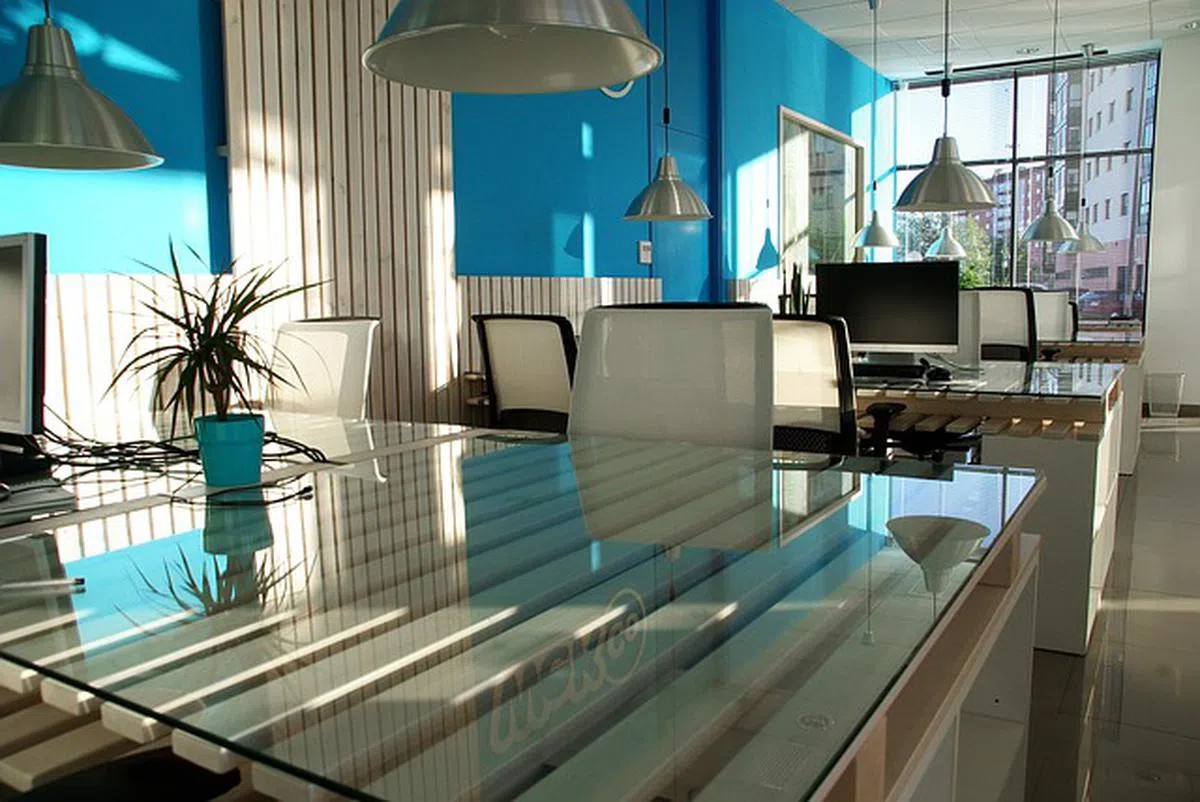TWO contractors who provide interior fit-out construction services for non-residential properties were penalised by the Competition and Consumer Commission of Singapore (CCCS) for rigging the bids for several tenders, said CCCS in a press statement on Friday (Dec 20).
Flex Connect and Tarkus Interiors received an infringement decision from the CCCS on Friday for infringing the Competition Act 2004, after investigations found that they had participated in bid-rigging. An infringement decision details the facts and evidence that the CCCS bases decisions on.
The companies were levied financial penalties that came to around S$10 million for their misconduct, which involved rigging the bids of 12 separate tenders that ranged between S$187,000 and S$7.7 million in value, and in total were worth about S$34.1 million.
Both Flex Connect and Tarkus Interiors are among a small pool of firms eligible to undertake “high-value contracts”, the CCCS noted.
This is because they are registered at L6 under the Building and Construction Authority’s (BCA) Contractors Registration System, which allows businesses to tender for government projects with unlimited tender values for interior decoration and finishing works, explained the competition watchdog. Only 44 businesses are registered by BCA at this level.
CCCS chief executive Alvin Koh said: “Bid-rigging is a serious infringement of Singapore’s competition laws that harms both businesses and consumers. It distorts the competitive bidding process, drives up prices, and deprives customers from getting the best value for their tenders.”
BT in your inbox
Start and end each day with the latest news stories and analyses delivered straight to your inbox.
Koh added that the CCCS takes firm action against parties found to be colluding or participating in anti-competitive practices. He said that businesses that get approached to partake in such practices should “immediately refuse and publicly distance (themselves) from such discussions”.
The bid-rigging took place over a five-year period from 2016 to 2021, and involved tenders related to establishments such as retail spaces, food and beverage outlets, as well as office properties.
Affected premises included Citibank’s office at Changi Business Park, EY’s office at 77 Robinson Road and Hans Im Gluck’s premises at Boat Quay and Vivo City.
It typically involved one party – which would be designated as the winner – providing details such as bid pricing to the other party, which would then submit a more expensive bid to give the designated winner a better chance of winning the tender.
The CCCS said that such conduct “eliminated the competitive pressure” between the parties to submit their best offers to potential customers.
“As a result of the conduct, potential customers were not able to receive truly competitive offers from the parties, thus potentially overpaying for these tenders,” it added.
While the parties justified their actions by claiming that they were at risk of being excluded from future tenders if they declined to participate in a tender, the CCCS found that this did not justify their conduct.
“The parties’ collusive conduct effectively reduced the number of shortlisted tenderers genuinely competing, and gave customers the false appearance of competition for their tenders,” noted the competition watchdog.
Flex Connect was fined about S$4.9 million and Tarkus Interiors S$5.1 million. CCCS noted that as Flex Connect had applied for leniency during initial investigations, it was granted a reduced fine.
Under the CCCS’ leniency programme, businesses or individuals involved in cartel agreements or concerted practices that come forward early to the CCCS with information about their activities may receive lenient treatment.
The competition regulator added that it considered various factors, including each business’ turnover, the nature and seriousness of their infringements, and aggravating and mitigating factors when levying the fines.
As part of legal processes under the Competition Act, the CCCS issued a proposed infringement decision to the parties on May 23, 2024. This is a written notice given to parties that sets out the basis for CCCS’ decision to give them the opportunity to make representations and provide other information to the CCCS before it finalises its decision on whether an infringement has been committed.
The CCCS said it had carefully considered the representations it received from the parties’ lawyers before reaching the infringement decision which it issued on Friday.







